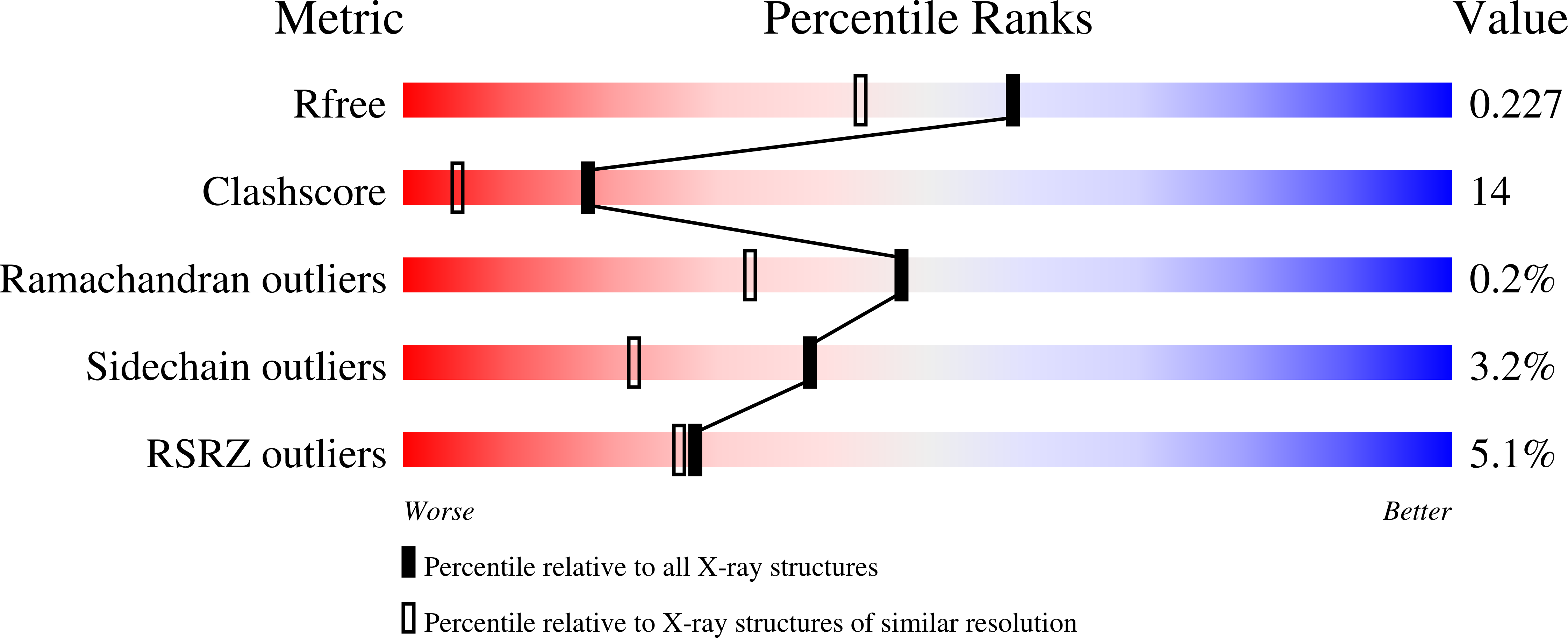Structural Characterizations of Glycerol Kinase: Unraveling Phosphorylation-Induced Long-Range Activation
Yeh, J.I., Kettering, R., Saxl, R., Bourand, A., Darbon, E., Joly, N., Briozzo, P., Deutscher, J.(2008) Biochemistry
- PubMed: 19102629
- DOI: https://doi.org/10.1021/bi8009407
- Primary Citation of Related Structures:
3D7E, 3FLC, 3H3N, 3H3O, 3H45, 3H46 - PubMed Abstract:
Glycerol metabolism provides a central link between sugar and fatty acid catabolism. In most bacteria, glycerol kinase plays a crucial role in regulating channel/facilitator-dependent uptake of glycerol into the cell. In the firmicute Enterococcus casseliflavus, this enzyme's activity is enhanced by phosphorylation of the histidine residue (His232) located in its activation loop, approximately 25 A from its catalytic cleft. We reported earlier that some mutations of His232 altered enzyme activities; we present here the crystal structures of these mutant GlpK enzymes. The structure of a mutant enzyme with enhanced enzymatic activity, His232Arg, reveals that residues at the catalytic cleft are more optimally aligned to bind ATP and mediate phosphoryl transfer. Specifically, the position of Arg18 in His232Arg shifts by approximately 1 A when compared to its position in wild-type (WT), His232Ala, and His232Glu enzymes. This new conformation of Arg18 is more optimally positioned at the presumed gamma-phosphate location of ATP, close to the glycerol substrate. In addition to structural changes exhibited at the active site, the conformational stability of the activation loop is decreased, as reflected by an approximately 35% increase in B factors ("thermal factors") in a mutant enzyme displaying diminished activity, His232Glu. Correlating conformational changes to alteration of enzymatic activities in the mutant enzymes identifies distinct localized regions that can have profound effects on intramolecular signal transduction. Alterations in pairwise interactions across the dimer interface can communicate phosphorylation states over 25 A from the activation loop to the catalytic cleft, positioning Arg18 to form favorable interactions at the beta,gamma-bridging position with ATP. This would offset loss of the hydrogen bonds at the gamma-phosphate of ATP during phosphoryl transfer to glycerol, suggesting that appropriate alignment of the second substrate of glycerol kinase, the ATP molecule, may largely determine the rate of glycerol 3-phosphate production.
Organizational Affiliation:
Department of Structural Biology, University of Pittsburgh, 3501 Fifth Avenue, Pittsburgh, Pennsylvania 15260, USA. jiyeh@pitt.edu
















